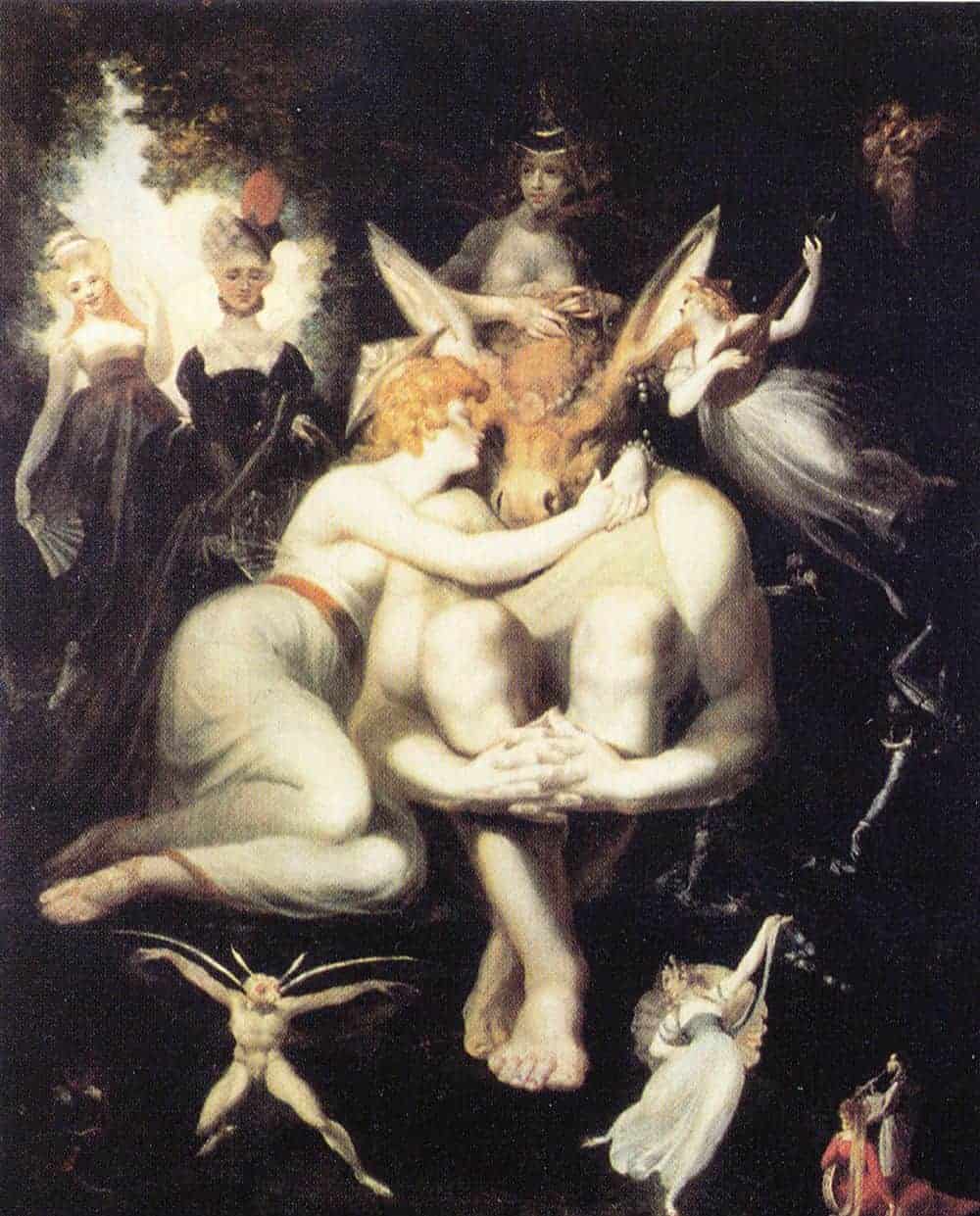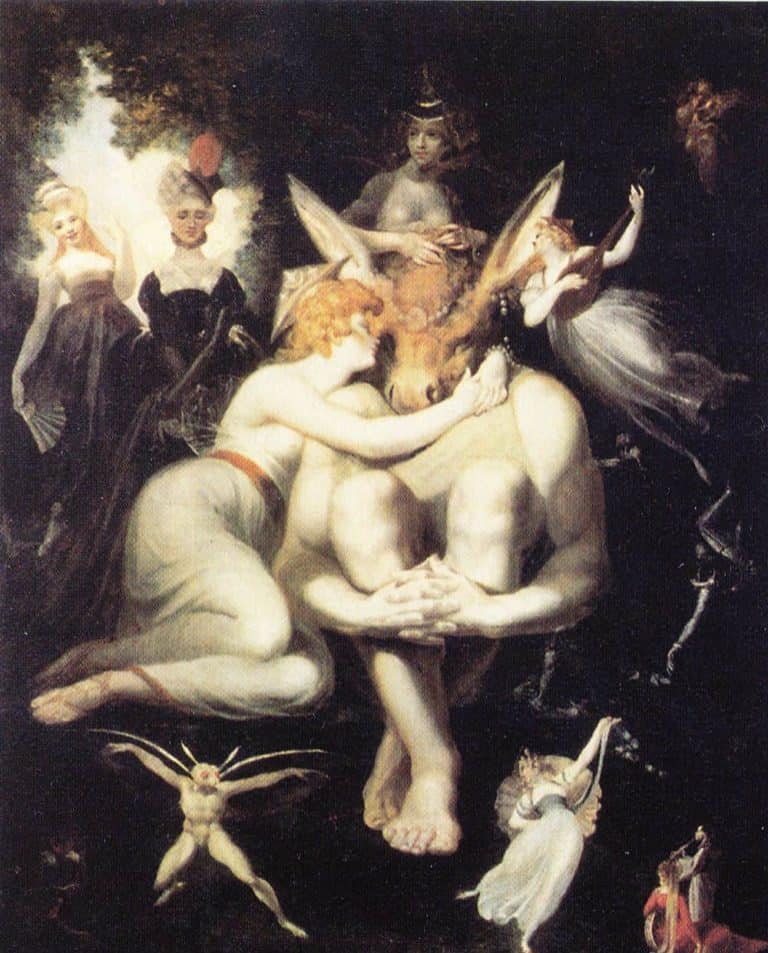
Introduction
Shakespeare has used many genres to convey his stories, especially comedies, tragedies and historical plays.
A Midsummer Night’s Dream is a comedy.
A comedy is a kind of drama which is intended primarily to entertain the audience and which usually ends unhappily for the characters. There are:
- romantic comedies: revolving around love (As you like it).
- satiric comedies: see French playwright Molière.
I – A Midsummer Night’s Dream and the convention of comedy
Shakespeare was influenced by the concept of intertextuality and there are literary interferences all the time in his plays. Shakespeare inherited a tradition derived from Antiquity with Greek and Latin authors such as Aristophanes, Plautus or Terence. It is indulging in a literary exercise:
- indulge in a game in which high spirits prevail (at least for comedy).
- celebrate life renewal.
In Molière, you can single out his intention of copying life, distorting it, making fun of it. The social dimension is essential and the satire is intended to bring out a moral lesson at the end. (L’Avare – Le Malade Imaginaire).
In Shakespeare’s comedies, there is no satiric excess. They are light-hearted comedies of errors, whose main theme is usually marriage or a celebration of marriage. The spring of comedy is a stratagem of exchanging partners. Lysander and Demetrius suddenly fall in love: beginning of a long qui-pro quo. Helena and Hermia are unaware of what is going on and think they are made fun of.
This type of situation is also drawn from Italian comedy: la “comedia del arte”, based on qui-pro quo, mistakes, mistaken identities and the sudden reversal of relationships. A young woman who is in love with another woman dressed as a man (Twelfth Night – As you like it).
Here, the stratagem is based on the love juice. The comedy implies the participation of the audience on characters. We are aware of the love juice, we know the reason of the misunderstanding and the presence of the fairies. The Duke and Duchess are in the same position as we are, watching A Midsummer Night’s Dream. The superiority is shown by the audience. This is not found in tragedy: you tend to identify with the characters to the past in their own misery.
It is different from Molière: the comedy has a moral message. The epilogue is an appeal to balance and understanding: “if you pardon we will pardon“: triumph of common sense.
G. Meredith, in The Spirit of Comedy, said: “the comic spirit is the fountain of common sense”. In other words, the aim of the comedy is to re-introduce a balance in the end.
II – Shakespeare’s festive comedy
His comedies are celebrations and the mood is of holidays and festivals, making the whole experience of the play like that of a revel. Seasonal connotation: return of summer, victory of summer over winter.
Spring is the natural renewal. The play is about a midsummer festival and the aim is to celebrate a forthcoming marriage. The whole plot is entertained by music, dancing and disguise. The festival implies an escape to the woods, to a place out of the limits of ordinary society. It is a world set apart, which marks a break in ordinary life because it implies in the remote past: anything can happen. The wood becomes a place of celebration, leading to imagination, freedom, away from the context of social norms and order. Aberrations are things that are not normally tolerated but that are accepted within the norms of the play: we know that in the end, everything goes back to normal. Aberrations are tolerable as long as they do not last.
Because it is a festive comedy, no single characters control comedy, it is always as if it were a group. We have several groups of characters enjoying their own fun and they sometimes meet. Because it is a comedy, it also ends with a reconciliation, a promise of bliss. All negative features have been pushed aside and it brings back the characters to the beginning of the play but not exactly: something has happened in between.
The characters have been through a lot of tension and they have all been affected. Those tensions have been necessary to improve and society is indeed reinforced because the tensions have been solved.
III – A low comedy
The second layer of comedy (Puck, Bottom…) has very little in common with the first one. The people, very ordinary, are better suited for this low comedy. It relies on an absurd situation: the Queen of Fairies falls in love with an ass. The discrepancies appear in the gap between the register, between the message (Titania, declaring her love to Bottom) and the object (an ass): lots of ridiculous situations. There is even a third layer of comedy with Pyramus and Thisbe.
It is a farce: the subject of the play is inappropriate for the circumstances, a tragedy for a marriage celebration. The mechanicals are inappropriate as actors, unfit for the role they have. The play within the play gives way to satire. This other type of comedy is based on exaggeration (Pyramus’ death: “I die I die I die”). Presence of semantic mistakes (‘I’ll aggravate thy voice”): linguistic fun, use of alliterations. If too much, it becomes grotesque. Bottom is also the jester, typical of Elizabethan comedy. He is the fool, a naive instinctive character, an outsider to the main plot and in a good position to express the truth.
Conclusion
A Midsummer Night’s Dream is one of Shakespeare’s greatest comedies. It is not limited to one single comedy and mixes several dimensions: that is what makes it interesting. It is also more than a comedy in the sense that it could have become a tragedy.

